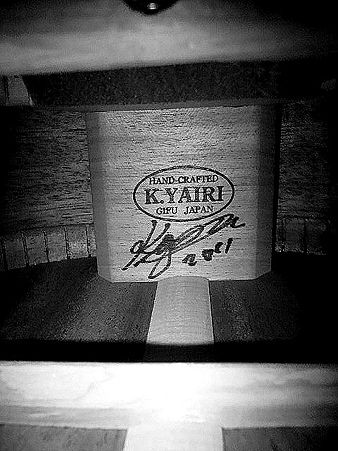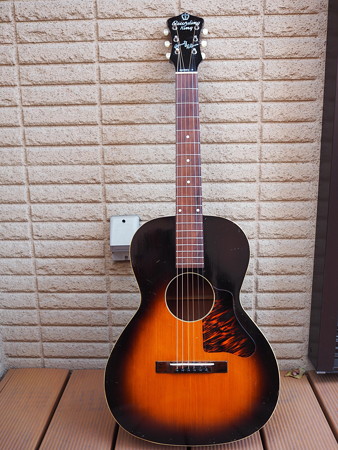×
[PR]上記の広告は3ヶ月以上新規記事投稿のないブログに表示されています。新しい記事を書く事で広告が消えます。

[PR]上記の広告は3ヶ月以上新規記事投稿のないブログに表示されています。新しい記事を書く事で広告が消えます。
Doctor Ross was a one man band and blues master!応援ポチっ頼んます。だあけみ
Doctor Ross : "Thirty Two Twenty"
1958 Blues straight outta Flint, MI
BIO:
Doctor Ross
October 21, 1925 May 28, 1993 "Doctor Ross the harmonica boss",
Biography by Jason Ankeny
Isaiah "Doc" Ross was a throwback to a bygone era; a true one-man band, he played harmonica, acoustic guitar, bass drum and high-hat simultaneously, creating a mighty racket harking back to the itinerant country-blues players wandering the Delta region during the earlier years of the 20th century. Born Charles Isaiah Ross on October 21, 1925 in Tunica, Mississippi, he took early inspiration from the music of Robert Johnson, Blind Boy Fuller and Sonny Boy Williamson I; primarily a harpist — hence his nickname "The Harmonica Boss" — he only added the other instruments in his arsenal in order to play a USO show while a member of the army during World War II. (The "Doc" moniker was acquired because he carried his harmonicas in a doctor's bag.) Upon his release from the military, Ross settled in Memphis, where he became a popular club fixture as well as the host of his own radio show on station WDIA; during his club residency he was witness to a number of brutal murders, however, and swore off appearances in such venues during the later years of his life. During the early 1950s, Ross recorded his first sides — among them "Chicago Breakdown" — for labels including Sun and Chess; in 1954 he settled in Flint, Michigan, where he went to work as a janitor for General Motors, a position he held until retiring. In 1965 he cut his first full-length LP, Call the Doctor, and that same year mounted his first European tour; as the years passed Ross performed live with decreasing frequency, however, and was infamous for backing out of shows to catch his beloved Detroit Tigers on television. Upon winning a Grammy for his 1981 album Rare Blues, he experienced a career resurgence, and played festival dates to great acclaim prior to his death on May 28, 1993.
秋本節ライブ「秋本節 西岡恭蔵を唄う」このおっちゃん、エエわぁ。
2009.09.14(MON)@Bar RUFFHOUSE
★出演:秋本節(from 神戸)、ハナメガネ
●秋本節オフィシャルサイト:http://www.geocities.jp/t_akkyan/

I hear the train a comin'歌詞です。
It's rolling round the bend
And I ain't seen the sunshine since I don't know when,
I'm stuck in Folsom prison, and time keeps draggin' on
But that train keeps a rollin' on down to San Antone..
When I was just a baby my mama told me. Son,
Always be a good boy, don't ever play with guns.
But I shot a man in Reno just to watch him die
When I hear that whistle blowing, I hang my head and cry..
I bet there's rich folks eating in a fancy dining car
They're probably drinkin' coffee and smoking big cigars.
Well I know I had it coming, I know I can't be free
But those people keep a movin'
And that's what tortures me...
Well if they freed me from this prison,
If that railroad train was mine
I bet I'd move it on a little farther down the line
Far from Folsom prison, that's where I want to stay
And I'd let that lonesome whistle blow my blues away.....
Here's a young Lenny Breau leading the rhythm section in a rendition of "Georgia On My Mind", from the Canadian show "A Touch of Jazz" recorded and aired originally in 1961.若いって何歳や??
...Enjoy!
PS: If you've seen the documentary "The Genius of Lenny Breau", part of this excerpt was also included there.
Part - 1.アフリカのJazz Guitarist,
African Jazz artist Lionel Loueke came down to the MusFlashTV studios recently to talk about his art, his instrument and his album.
A MusFlashTV Production
Producer: Marie-Claire Denyer
Cameras: Martyn Thomas / James Milloy
Sound: John Hendicott
Editor: Marie-Claire Denyer

Nick Lucas and guitar 1929.エンタテナーでんな。
In July, 1922 Nick Lucas cut two original sides for Pathe, "Picking The Guitar" and "Teasing The Frets." With these sides Nick Lucas also cut a path for generations of guitarist to come. These were the first solo jazz guitar instrumentals recorded. Without a doubt this had to be an influence on banjoists such as Eddie Lang, and also an inspiration for him to trade the banjo in for a guitar. Eddie Lang would later elaborate on Lucas' fast bass runs and be remembered as being the father of jazz guitar, this makes Nick Lucas the Grandfather of jazz guitar.
Nick Lucas was the first to trade his banjo and replace it with guitar in the big name orchestras of the day. It took a few years for Nick's contemporaries to emulate him on the instrument. While these great guitarists were grinding their axes and become mostly sidemen, Lucas was looking past and beyond just being cast as an accompanist.
His recording career spanned from test cylinders for Thomas Edison in 1912 to the stereophonic age in 1980, with total disc sales in excess of 80 million copies. It is doubtful that anyone in popular music had a longer recording career, one that spanned seven decades.
It is important to remember that, though the height of his popularity came in the late 1920's, Nick Lucas' style was set by the time he moved to Chicago in 1922. Before electrical recording, before Louis Armstrong ever found his way into a recording studio, Nick Lucas had found his voice, and used it in much the same way for sixty years.
This record was first released in 1969 and gained great reviews. But by some reason it was never released on cd. So I decided to transfer it from my orginal vinyl to upload it here. I remixed it and adjusted the volume levels to make it sound better. Hope you enjoy and if you want more please suscribe to my channel.げな。
Original version of one of the best easy listening arrangements I've heard, performed and composed by urban blues pianist Leroy Carr.へぇ、
Later becoming a jazz and blues standard, covered and reworked by Robert Johnson (Love In Vain), Ray Charles, The Mills Brothers, Big Bill Broonzy, Count Basie, The Inkspots and many others.






